Rare diseases and pregnancy and new-born screening programmes in Scotland: improving national data; informing health service governance and improvement; and delivering epidemiological research
Principle Investigator (lead Institution) – Professor Rachael Wood (Public Health Scotland)
Collaborating institutions – NHS National Services Scotland: National Screening Oversight Function, NHS Lothian, University of Edinburgh
Funding amount – £999,375
Lay Summary
Rare health conditions present specific challenges for public health and health services. Whilst each individual condition is rare, collectively these conditions are common. Many are congenital (present from birth); have an underlying genetic basis; and/or are severe. New treatments are becoming available, but these are often very expensive.
All pregnant women and newborn babies are offered pregnancy and newborn screening (PNBS) as part of NHS care. PNBS detects specific rare conditions at an early stage, offering the opportunity for optimal care during pregnancy and birth, prompt treatment for affected babies after birth, and improved outcomes. For some parents, pregnancy screening may also offer reproductive choice. In addition to existing PNBS programmes, there is increasing interest in extending PNBS to cover more conditions as screening, diagnostic, and treatment options develop.
Public Health Scotland (PHS) is responsible for collecting agreed national health data returns from local health services and analysing the data to inform health and health services improvement. PHS uses the data to publish official statistics on health and undertake research. In general the data held by PHS is high quality, however data on rare conditions is very limited. To start to address this, PHS has established a national register of babies with congenital and rare conditions, however this currently does not include many of the conditions covered by PNBS. PHS has also developed national data on one pregnancy screening programme (for chromosomal conditions such as Down’s syndrome), but national data on the other PNBS programmes is currently very limited.
This proposed research programme will address these gaps by:
- Establishing new national data on provision of the following PNBS programmes:
- Pregnancy screening for infectious diseases and haemoglobinopathies (conditions affecting the blood),
- Newborn hearing and bloodspot screening (the bloodspot screens for 10 conditions including conditions affecting how the cells of the body work).
- Extending the congenital and rare condition register to include babies diagnosed with the conditions covered by these PNBS programmes.
- Producing new official statistics on how well these PNBS programmes are being delivered and on babies diagnosed with the associated conditions.
- Undertaking research to answer important questions including:
- Are women and babies from different population subgroups equally likely to receive screening?
- How well do the PNBS programmes delivered through the NHS perform?
- How common are the conditions covered by PNBS programmes, and what are the health outcomes of affected babies?
This research programme is embedded within the NHS, and its outputs will be used directly to improve health and health services. Outputs will help policy makers and the NHS monitor the PNBS programmes and ensure they are being delivered fairly and to agreed standards. Findings will be incorporated into national patient information materials to ensure these support informed choices about screening. Results on the occurrence of rare conditions will be used to ensure that there are sufficient services to support affected babies. Finally, this work will help to ensure that PHS is ready to support the implementation of new PNBS programmes as required.
